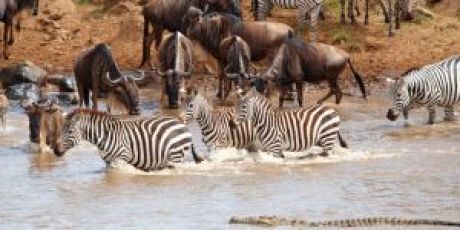#SavetheChocó - an Appeal from the World Land Trust
Posted on
|
The World Land Trust is known for its fundraising efforts to rescue vital parts of the natural world. It works with local conservation groups around the world. Every year it runs a Big Match Fortnight, in which donations are matched. And this year, the World Land Trust are fundraising for its partner Fundación Jocotoco who protect vital rainforest. For the last 2% of Ecuador’s Chocó forests is approaching an extinction cliff. The Big Match Fortnight is running from 1 to 14 October 2020 and it is a great chance to make donations go twice the distance. There are just 500 brown-headed spider monkeys who are thought to be alive in the wild on the planet. On one hike, 60 to 70 were counted in the tropical rainforest between the Pacific coast and the Andean peaks – about 15% of the single global population in a day. It’s not an easy place to work in – rangers have to handle constant downpours, rugged terrain, and slippery ground. Over 80 years ago, the forest stretched all over Ecuador’s west. Ecuador has lost 98% of this natural wonder to oil palm plantations and others. A new plan could mean that such a loss has numbered days. Jocotoco has a chance to buy and protect 57,000 acres of Chocó forest from one company.
The appeal from the World Land Trust will support at least 1,667 acres and other organisations will help fund the total too. The area has the same reptile and amphibian diversity as the Amazon; it’s got the highest plant diversity of the Americas and more bird species in 100 square miles than across all Europe. 25% of its flora and 10% of its fauna is found nowhere else on earth. Logging could destroy the last 2% of this forest. Support the World Land Trust’s “Saving Ecuador’s Choco Forest” appeal and you can help it last forever. |
